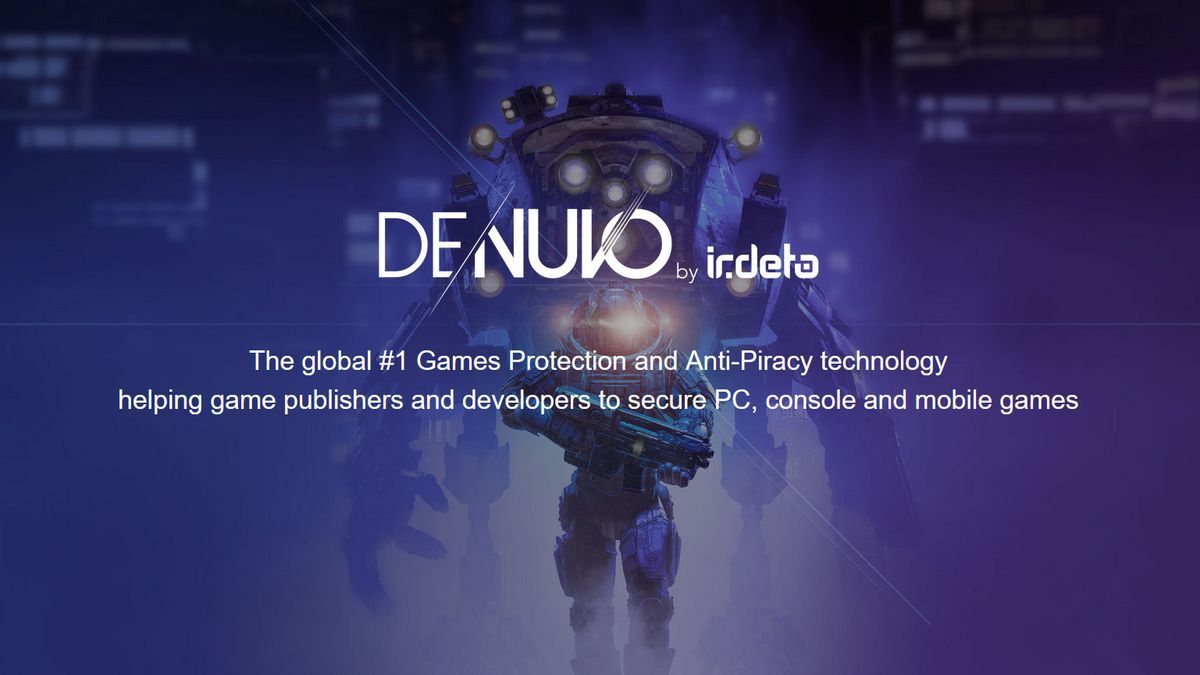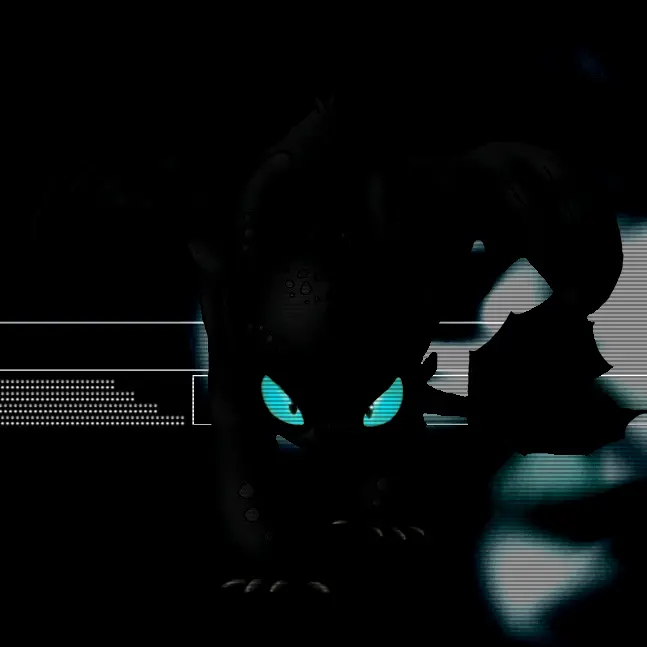Reduction from what to what? Don’t give me that “potential” bullshit. Count your chickens after they hatch. One game is not comparable to another.
🎵Piracy is a service problem🎵
Why do they all pretend like CDPR doesn’t exist? I bet Witcher 3 and Cyberpunk sold way more than the vast majority of denuvo games.
Note to studios: there is no amount of potential, unrealised profit that makes it ethical to install malware on another person’s computer.
I wonder how much they lose just from it having Denuvo in general…
That got lost in the wild. Also funny that shitier experience is more expensive than seeking for a better one for free. I remember it with Hogwarts Legacy when Denuvo free version got less frame drops and more FPS than Denuvo counterpart.
I doubt they’ll ever admit it, or even look into it.
I would pirate any game without protection if I would have to buy it with protection. Such cracked games, if truly cracked… run better and have no need for cumbersome registrations.
I’m not going to purchase the document to find out, and the abstract doesn’t really cover it, but I’m curious what the methodology was here. I seriously doubt that piracy is that prevalent. It’s possible that people are upset with certain companies and aim to pirate their games, and the fact that those companies are the same ones that use Denuvo is happenstance. It’s also possible that they’re using total downloads of pirated copies vs. total sales as their statistic, which is misleading, because I’d wager the majority of folks who pirate the game would not have purchased it if it wasn’t available to download for free.
I’d also be curious if the price of the game was a factor; I imagine more people are looking to pirate a game priced at $70 than one priced at $40, for example.
Really, there’s too many factors to consider here and I don’t think there’s a reasonable way to say how many folks who pirated a given game actually would have purchased it.
Other studies have shown that piracy actually leads to increased sales in video games. Very curious to know who funded this study. I bet they’re linked to big game publishers and/or Denuvo themselves.
I once pirated Cuphead and loved it so much that I felt bad not supporting and buying it. It was only after First Isle.
I pirated NieR Automata having absolutely no idea anything about Yoko Taro or his games.
Long story short, I bought NieR Automata 7 times, NieR Replicant 1.22 3 times (including preordering the more expensive White Snow Collectors Edition), imported a Japanese copy of NieR Gestalt and bought it on the Xbox backwards compatibility store, and spent money on the mobile gacha game not even for characters, but literally just to give Square my money and say “I want more Yoko Taro games.”
Nobody can ever convince me that piracy causes companies to lose money long term if they actually make a good product. Piracy is the best thing consumers can do to protect themselves from a bad purchase, and trying to prevent it is a predatory practice to increase sales to people who then cannot return the product for a refund if they don’t like it.
Sometimes I wonder to myself: why pay in advance? Why can’t we get back our money because something is not good as we thought it would be? You pirated an ebook? You can buy it after reading if you enjoyed it. A game? Same. And so on.
I like that indie games are bringing demos back. Like actually playable demos, not like a tech demo, the first 1-5 levels, so you can get a proper feel for the game before you shell out. 6 of the last 9 demos I played in the past year resulted in me purchasing the game.
That’s how drug dealers gets you addicted haha
And they do it because it works. It builds good will, shows that the product is high quality, clean and pure.
If it didn’t have an official demo, I “acquired” it before I bought it.
I don’t buy games unless I know it will be something I like.
There was some interesting study how much % of games we buy (on sales) we don’t play. The reality is we can get bored and have a new shiny thing. And also we are limited by finite time.
In elementary school, back in the days when only 2 or so kids in a class had a computer I learned to pirate software, games, and movies my parents said we didn’t have money for. By highschool having a computer was more common and I became one of the nerd heroes by teaching others how to pirate games and avoid viruses, and save their allowance/meager part time pay.
Once I had my first decently paying ‘real’ job I just bought my own games on steam and while a lot of friends stopped gaming they still bought movies and eventually netflix subscriptions because it was cheap, easy, and had customer support included. Now everything is becoming shit again so all the corporate types are inventing bullshit reasons for the losses they created on their own.
It’s possible that people are upset with certain companies and aim to pirate their games
I’m kinda the opposite. I won’t even pirate some companies games because those company’s suck that much…ea and Ubisoft being major players in the slop I don’t even pirate.
I will pirate almost every other game though, as a full version demo. If it’s good, or I boot it up more then once I tend to buy it. Otherwise, I won’t even give it a second though.
The 2 hour refund window is sometimes not enough time to find out how trash a game is, so I use my above full version demo method.
Yeap! On principal, I won’t buy any game that dumps pre-orders of games on Steam in lieu of exclusivity, from other non-Epic platforms, even if I liked the game series before. For instance, I have really liked the Metro series of games. However, as soon as the third game was announced as exclusive to Epic, I refused to purchase it on Steam even after the exclusivity deal expired. It didn’t help that the creator of the Metro games caught wind of people refusing to buy the game and threatened to not make anymore if sales bombed on Epic.
I’m just so tired of all the entities in this world that would rather make a quick buck, then milking as much from the player-base as possible, while standing in the way of me eeking out some sort of happiness in this shit-ass capitalistic hellscape. Would I rather be doing more creative shit with my free time or enjoying life in some capacity? Sure, but until we tear down this shitty pyramid scheme our society has bought into, games are the one thing that I still enjoy. I watch them actively deleting content for games I love, or making the content only available on specific platforms, and it makes me want to flay these wealthy fucks and leave them for the crows…
Not many companies release this number, the only one I remember is of World of Goo, which is pretty old now. They mentioned that there was about 90% piracy rate for their game.
How would they even know?
You can get a floor of an estimate if people don’t remove stuff that phones home.
Only if the part phoning home does send some sort of unique id.
Source IP.
Between NAT, CGNAT and the same instance checking in more than once that is not a very reliable way to count anything.
You asked how they could tell and I’m giving a best guess. I’m not saying it’s a perfect approach.
Hmmm, I’m also curious about their methods as there really isn’t a clean way to do this. They seem unaffiliated with anyone and isn’t paid for my anyone (seems more like a person trying to get another notch on their CV) but unfortunately the research is behind a paywall.
I know a lot of statistical models, and the only decent one I can think of are propensity score models that, put simply, try to match a game with denuvo with it’s nearest neighbor in a database, paired based on a variety of attributes. For example, Game A has cracked denuvo, Game B wasn’t cracked, matched on review score, price, and any other forward facing and easily quantifiable metric.
Those models aren’t without their flaws, though, and the attributes you pair with could be any variety of things and make it really easy to say whatever the hell you want with the data. There’s always something you’re missing, which is especially true if you’re looking at denuvo vs none.
Also 99% chance this guy probably isn’t even that rigorous in their method. CV fluffing, you usually don’t have time for that.
Edit: also the journal is in isn’t well regarded, although there aren’t many top tier journals that are that specific.
but unfortunately the research is behind a paywall.
Do you mean from here?
Edit: I replied to myself with the full article, just in case. I have to go and can’t read it at the moment.
Abstract In the personal computer video game market, a digital rights management (DRM) technology called Denuvo has been used since 2014 to restrict software usage to legitimate buyers, thereby preventing piracy. Sometimes Denuvo DRM is bypassed or “cracked”, after which the video game can be pirated. I exploit the randomness with which Denuvo is cracked to estimate the effect Denuvo has on protecting revenue from piracy displacement. When Denuvo is cracked very early on, piracy leads to an estimated 20 percent fall in total revenue on average relative to an uncracked counterfactual, but that effect is weaker the longer it takes for Denuvo to be cracked. When Denuvo survives for at least 12 weeks, piracy leads to nearly zero total revenue loss on average. The results suggest that Denuvo does protect legitimate sales to an estimated mean of 15 percent of total revenue and median of 20 percent, but there is little justification to employ Denuvo long-term (i.e. for more than three months), especially given that Denuvo can have negative technical side effects and is generally disliked by users.
Section snippets Digital goods and digital rights management Digital goods are unique because anyone with access to the sequence of zeros and ones that constitute the good can replicate the good with no special know-how, compromising a developer’s control over supply. Furthermore, affordable and rapid internet speeds along with plentiful storage imply that additional units can be produced and distributed at practically zero cost by nearly anyone. Computer files are non-rivalrous and non-excludable goods. Consequently many developers rely on some form of DRM business decisions and effects The decision for publishers to use DRM on video games appears to depend on how rampant piracy is, whether DRM will survive for any meaningful period of time, and whether the developers have strong feelings against DRM. Video game publishers themselves have said that piracy is a concern, with the CEO of Ubisoft claiming that their piracy rates were above 90%, and furthermore than their DRM was “a success” in reducing piracy; but Ubisoft also mentioned that the online-only nature of their DRM was
Summary of Denuvo DRM “Denuvo Anti-Tamper” is a digital rights management technology that has been used prominently with PC video games since 2014. Its stated purpose is to prevent unauthorized distribution of software for a long enough period of time so as to protect early revenue from displacement. It works by assigning “a unique authentication ‘ticket’ to each copy of a game, a sort of license shaped by all sorts of factors like hardware ID. Because Denuvo integrates with a game’s code, you can’t just crack it Variables and data The probability that a particular game’s DRM gets cracked depends on how strongly cracking groups are focused on that particular game, so it is worth asking: what factors would make cracking groups target a particular game, and what factors can one use to predict how long DRM will last? It is hypothesized here that one is better able to predict if and how quickly a game is cracked depending on the following factors. (Subsequent tests will argue that none of the factors actually do help in
Effect of being cracked In this section, I examine how the availability of a cracked copy of a game affects a game’s revenue over time. The timing of the crack will be critical: revenue is highest close to the release date, and therefore a crack that appears close to the release date has a disproportionately large effect on revenue. On the other hand, a crack that appears well in to the future has little effect. This result has some precedent in other studies, for example Ma et al. [58] find that the pre-release
Predicting a crack I do the same tests using Metacritic scores instead of OpenCritic scores. Metacritic’s scoring system is opaque, sometimes omits reviews from notable publications with no explanation, and has no scores at all for many games, which is why it was not chosen as the main variable. That said, it can serve as a robustness check as a measurement of quality. As shown in Tables A.3, A.4, and A.5, the results are typically worse for regressions using Metacritic scores: the -values are considerably
Conclusion As with sales of digital music, movies, and e-books, sales of a certain type of video game (specifically, those with relatively small network effects) also appears to be prone to displacement from piracy. There appears to be little difference between the kinds of games that are cracked quickly and those that are not. When DRM survives the efforts of cracking groups, it appears to protect such video game sales from displacement of piracy. The extent to which DRM protects legitimate sales depends CRediT authorship contribution statement William M. Volckmann II: Writing – review & editing, Writing – original draft, Project administration, Methodology, Investigation, Formal analysis, Data curation, Conceptualization. Declaration of competing interest The authors declare that they have no known competing financial interests or personal relationships that could have appeared to influence the work reported in this paper.
Acknowledgments I would like to thank Erich Muehlegger, Jacob Anderson, and Tomáš Fedor for facilitating data access and collection for this project.
That’s not the full article, just the summary on the journal page. That said, we shouldn’t be purchasing overpriced articles, they’re priced so only well funded academic libraries can pay and access them (It’s a racket taking advantage of hidden costs in education, as opaque as our shitty healthcare insurance but less talked about).
Like I said, they’re at best matching on review scores and pretending that’s all that’s going on to influence earnings. Articles like this aren’t particularly useful, although they’re perhaps less damaging that those with junk science claiming video games are the reason for school shootings and such. I get students who still believe that junk.
Highlights
• Denuvo DRM protects total revenue from piracy by a mean of 15% and a median of 20%. • Piracy causes mean total revenue to decrease by 20% when Denuvo is cracked quickly. • Piracy causes zero mean total revenue loss when Denuvo survives for 12 weeks or more. • The characteristics of a game cannot explain its likelihood of being cracked.
If a game has Denuvo, I will just not buy it. Ever. I won’t even consider it until it’s removed. Thankfully it doesn’t happen too often that games that interest me have it, but it does happen.
Since this can’t be quantified, because there is no real way to get numbers on people that do this or similar things (except for “wild guessing”), three big ones (being public or backed by traditional investors) can’t make an argument for not having it. So here we are.
This boycott is hard if you like Sega games, they are still paying for denuvo on their older titles like Judgement, multiple years of paying 100k USD a year, it’s insane.
The only studio that I have to completely avoid because of this, who actually make games I’d normally play, is frontier developments. Think things like planet coaster, Jurassic world evolution or stranded: alien dawn. They also never remove it. I think I read a quote that whoever is in charge believes people will “get over it” and eventually buy it anyway. I can’t speak for others, but I sure won’t.
It’s a shame, but there are other games in the genre(s) that are just as good, arguably better. And I already own more games than I can play, as the backlog seems to just grow.
Nothing like this can be quantified. There’s just people in these companies who think they have an easy target to pass the buck. Losers who lean on excuses like that never make anything good. It doesn’t even matter if your excuse is something real and valid. Just beat it.
Even if it’s not, dunovu results in a 100% loss of my interest, and I will not spend money on it
In fact even after its removed I am much less likely to buy it than I was before it was added
I wonder how much of that 20% is due to “Game X Denuvo has been cracked” headlines bringing attention to the fact its using Denuvo?
deleted by creator
And the race is on!
They do not state the methodology used (paywalled is the same as not existent to me).
So probably it’s just not true.











